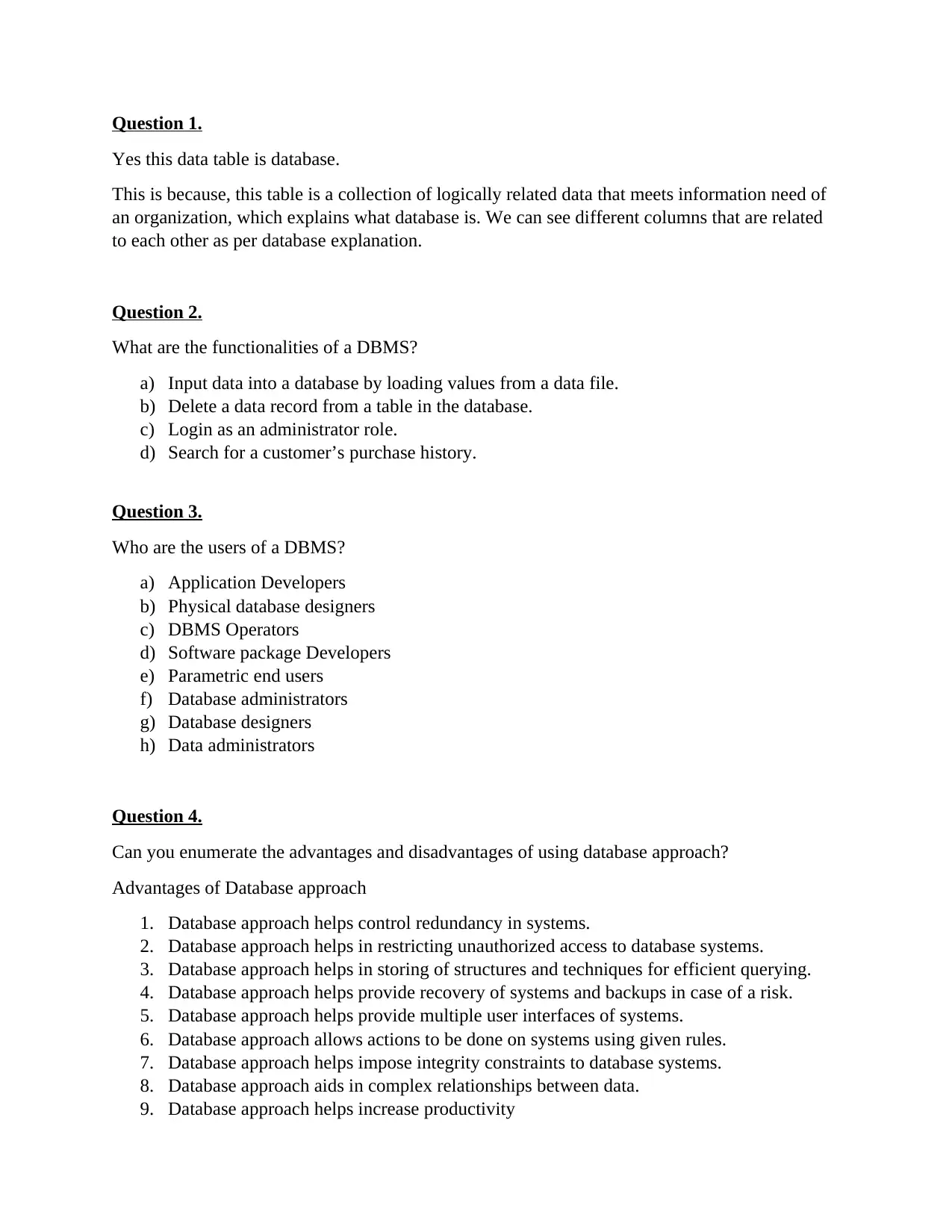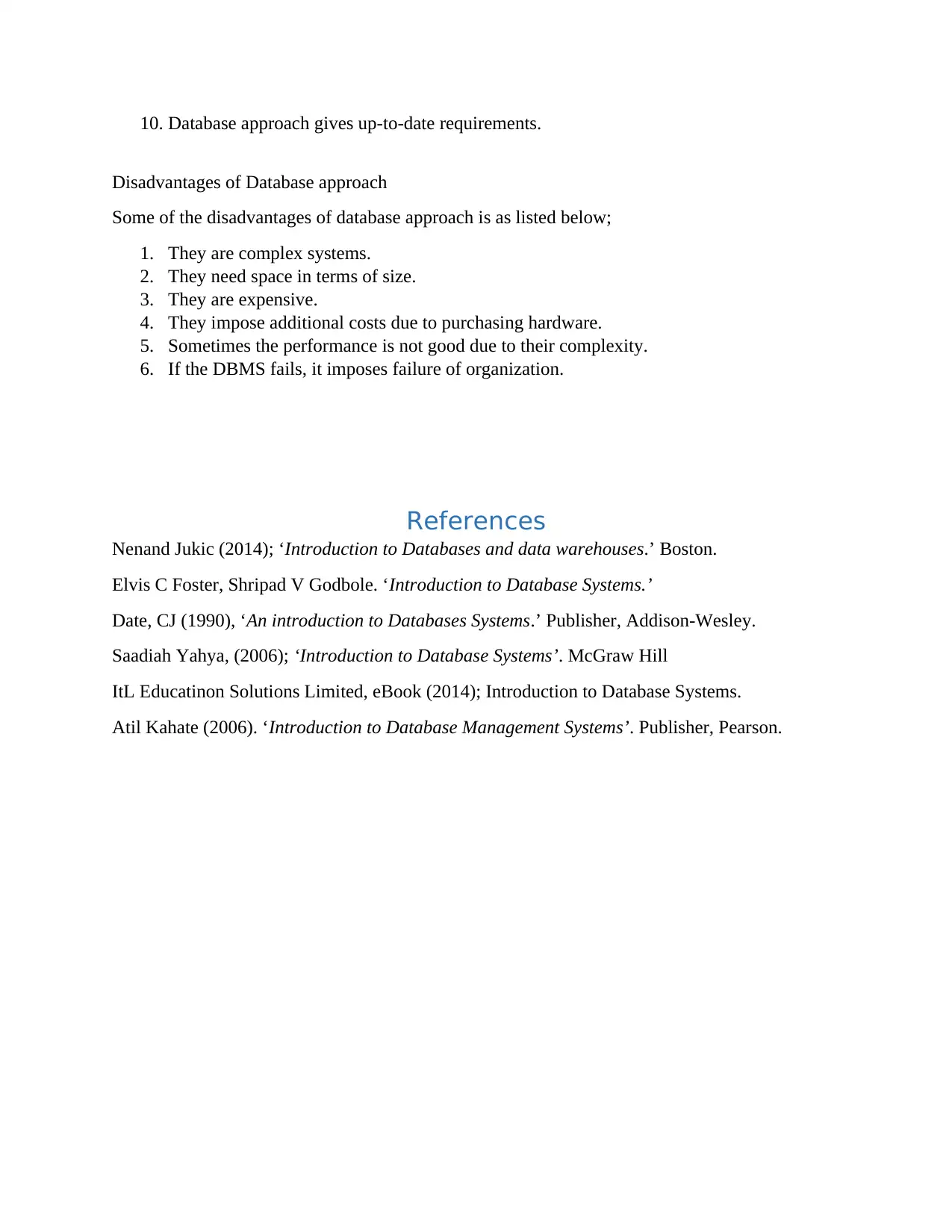Database Systems: Homework Assignment on DBMS and its Applications
VerifiedAdded on 2020/05/01
|2
|413
|66
Homework Assignment
AI Summary
This homework assignment delves into the core concepts of Database Systems and Database Management Systems (DBMS). It begins by establishing that a data table constitutes a database, explaining the rationale behind this classification. The assignment then explores the functionalities of a DBMS, including data input, deletion, and user access. Furthermore, it identifies various users of a DBMS, such as application developers, database designers, and administrators. The assignment also provides an overview of the advantages and disadvantages of using a database approach, discussing benefits like controlled redundancy and enhanced security, alongside drawbacks such as complexity and potential system failure. The assignment is well-supported by references from leading texts on database systems.
1 out of 2








![[object Object]](/_next/static/media/star-bottom.7253800d.svg)